Text
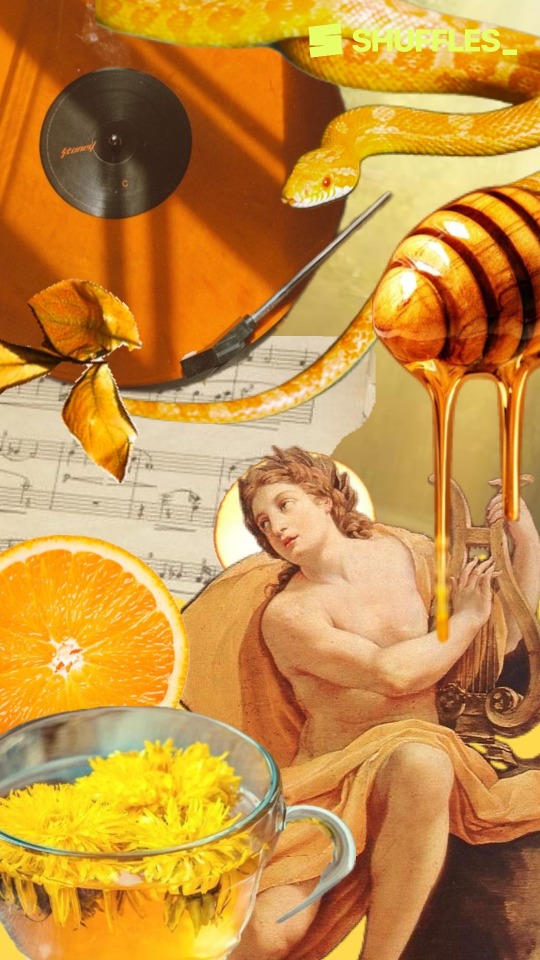
24 notes
·
View notes
Text
Tarot Card Associations for Hellenic Deities
Fool - Dionysus, Hermes, Pan, Ate, Gelos, Momus, Horme
Magician - Hephaestus, Hermes, Hecate, Aristeaus, Circe, the Muses, Apollo
High Priestess - Hecate, Persephone, Hera, Circe
Empress - Hera, Aphrodite, Demeter, Hestia, Gaia, Rhea
Emperor - Zeus, Hades, Poseidon, Ares
Hierophant - Demeter, Persephone, Hecate, Hestia, Hera, Gaia, Rhea
Lovers - Aphrodite, Eros, Dionysus, Adonis, Hera, Philotes
Chariot - Hermes, Charon, Iris, Morpheus
Strength - Athena, Ares, Heracles, Nike, Bia, Kratos,
Hermit - Hades, Hestia
Wheel of Fortune - Hermes, Tyche, the Fates, Zeus
Justice - Athena, Themis, Nemesis, Astraea, Apollo
Hanged Man - Hermes, Harpocrates, Prometheus, Psyche
Death - Hades, Thanatos, Dionysus, Charon, Persephone, Ares
Temperance - Athena, Demeter, Artemis, Harmonia
Devil - Dionysus, Pan, Comus, Ate, Priapus
Tower - Ares, Poseidon, Deimos, Phobos, Eris, Moros, Enyo, Hybris
Star - Aphrodite, Artemis, Astraea, Urania, Hermes, Eos, Hesperus
Moon - Selene, Artemis, Hecate, Nyx, Hypnos, Erebus
Sun - Apollo, Helios, Hemera, Hyperion
Judgment - Zeus, hades, Athena
World - Hermes, Demeter, Gaia, Hestia, Harmonia, Pan, Tyche
772 notes
·
View notes
Text
Offerings and their Removal
Disclosure, this may not apply to everyone! Cherry pick it if that works for you, or take none at all. Just no hate or arguments in the comments!
Definition- Offering - Something given to an entity or deity to show appreciation. This can also be something done or said to show appreciation.
~~~~~Types of Offerings~~~~~
Food- In ancient tradition, specifically Greek, the first bites of food were thrown into the fire to be sent through the gods by smoke. However, this isn't an option for many people these days. Alternative methods are favored.
Fire - The old methods are still applicable if available. If one has a bon fire or fire-place/hearth, the first bite of food can still be "smoked" , per-say.
Prayer - A small prayer can be said over food before the first bite is taken. Just a simple "Entity/spirit, please accept this offering, Blessed Be" or something similar can suffice. This, for some deities like Hestia can be done at the end too. This is more convenient for a hidden practice and for those who can't afford to waste food.
Altar- If you have an altar, or ever a small bowl, they can place the first bite of food there for the deity entity too.
Objects and Trinkets- Just like us, deities/entities love little trinkets. Whether it be a few coins you find nice to a statue or an engraved candle. Whatever it my be, it can be given to an entity with a prayer and/or on an altar in their honor.
Removables - There are some things that can be placed on altar and taken off. I like to call them removables. When placed on an altar, one could say "Entity/Deity, bless this object, with your energy and blessings." let it sit for a moment or cleanse with incense. If a clothing item, accessory, or perfume, you can take it off and use/wear it. Just remember to put it back to refresh the energy and discuss before taking it off for the first time.
Actions - There are also things that one can do in offer of a deity or entity. They can be small things, like prayers, to full-on rituals.
Prayer- This is probably the easiest in my opinion. It can be a small "Hey entity/deity, I appreciate you." on the go, or reciting a hymn or a prayer by the altar. It's incredibly diverse and can meld to any practice.
Chores - This can apply more to some deities than others, but just Keeping your room and house tidy can be done in honor of a deity. Altars specifically can be cleaned or re-arranged as an offering
Art-In ancient times, arts of every kind were offered to deities ant spirits. And it can fit most anyone's style.
Music- written specifically or just a song you think reminds you of them.
Drawings/Paintings- try thing that reminds you of the deity or how you see them can be drawn or painted.
Others- Pottery, Dance, Crocheting or handy crafts, or even more. All can be done in offering to a deity.
Specifics - If you have done research into who you're offering to, you can offer specific things. Sleep for Hypnos, Baking bread for Hestia, Rehearsing if in the arts for Dionysus, etc.
Self Care- This not a lot of people think applies, however the gas most want you to be kind to your self. whether it be a bath with oils, flower petals, and all the works to just brushing your teeth at night. All would make the gods/entities very proud of you!!
~~~~~Disposal~~~~~
This is something a bit more difficult; You did the thing, you think it's time, now what do you do? A decent chunk of this section was taken from @khaire-traveler. Obviously, actions cannot be "removed" Once the action is complete, the offering is sent.
Food- khaire narrowed it into 4 options that I really like. Just remember, when on an alter, don't let it sit too long for health concerns (rotting, bugs, etc.)
Consume - After praying aver the food like I had mentioned before.
Bum - Also mentioned before, but can be done after sitting at an altar for awhile.
Bury- Food offerings. if safe for local wildlife, can be buried. "My logic in burying them (only if environmentally safe) is returning the offering to the earth in a sense." (khair-3) (Yes its MLA cited, AP capstone has rotted my brain) If that fits Your practice, it is a good option.
Dispose, - This, like everything else here, must be done with respect. Clarify with the entity/deity that you aren't doing so out of disrespect, rather because this is your preferred disposal style or your only option
Objects/Art Pieces- If you have this ability, talk to your entity/deity about it, clarify there is no disrespect in the removal, and give the deity some time to de-attach to it. Slowly, the energy will fade from the object when kept away from the altar. This doesn't need to a ritual, but can be if that's what you prefer
Thank you for reading! This is my first fore into the pagan-sphere, so if this is something a lot of people like, I'll continue!
Blessed Be,
Alyssa the Witch!
1K notes
·
View notes
Text
Pharmakeia, Kirke, Divinity, and Mortality
One thing that I love and find intensely interesting about the goddess, nymph, and/or hero Kirke is the fact that she exists in a space between mortal and divine in every portrayal, but is almost never a demigoddess. So I wanted to address and unpack that a bit, because I haven't seen much on it and it deserves attention.
First, Kirke as a very mortal goddess--this is how I'd classify her portrayal in the Odyssey, where she is clearly divine, but described as very reminiscent of a mortal. This is the origin of one of her most famous epithets, "of mortal speech." This is generally viewed as a unique trait of Kirke.
Second, Kirke as a godly mortal. She was sometimes worshipped with hero cultus, with a sacred space of hers being described as a tomb, generally reserved for dead mortal heroes. I don't believe she was ever viewed as fully mortal, but she was at least mortal adjacent, which is significant in and of itself, even if a rarer portrayal.
Generally, pharmakeia (the sorcery she performed, based in herbs) was seen as at least partly a divine power, but also, not fully in the hands of the gods. The theoi do not need herbs and witchcraft to work their wills, but working one's will through herbs and witchcraft must be at least partly based in a non-mortal power.
Kirke, in my opinion, embodies this divide. As the pharmakis goddess of Aiaia, she uses a craft both mortal and divine. The working of herbs for power is not the way of a full god, but using the power of the herbs is not the typical way of a mortal.
For clarity's sake, I am aware I am somewhat echoing arguments against witchcraft and pharmakeia in Hellenic Polytheist spheres, so I'd like to say that I do not believe pharmakeia to be a hubristic practice. Pharmakeia, in the hands of a mortal pharmakis, controls no god. Gods may refuse their aid, spells may fail and be broken. And, actually, this is another aspect of Kirke's story I find so applicable to pharmakeia: Hermes and the herb 'moly.'
Moly is a herb given to Odysseus by Hermes to protect against Kirke's enchantments. The fact that her pharmakeia is resisted with one little plant, and that the plant is given to a hero by a god, is not an accident.
This is a clear example of how pharmakeia may be overpowered by the gods, and some crafty mortals. Hermes prevented the manifestation of her charms completely and utterly. From this it follows that, outside of stories, the theoi may prevent any witchcraft from succeeding without their consent, and most likely do not need the mythic moly to do it.
But Kirke, the mortal-like goddess and divine mortal, does not need the aid of any god but herself to work her magiks. The gods may stop her, but never control her. She is not under the theoi, and she is not divorced from mortals. She holds the powers, the qualities, and the craft of both.
146 notes
·
View notes
Text
Kirke/Circe (Κιρκη) - Magic Weaver of Aeaea
I’m working on writing up a more in-depth introduction to worshiping her, but in the mean time I wrote this as a crash course on Kirke/Circe, an ancient Greek (and sometimes Roman) goddess of witchcraft and sorcery :) This is by no means intended to be an exhaustive guide to Kirke and worshiping her, but more as a quick summary and reference to guide further research. If you have further questions, feel free to DM me any time !
Overview:
Goddess of/Domains (1, 2, 4, 5, 6, 7):
Sorcery and Witchcraft
Transmutation
Illusion
Necromancy
Prophecy
Realm: Island of Aeaea (1, 2, 4, 5, 6)
Main Myths
1. Odysseus/Ulysses on Aeaea: See the Odyssey, the Library, Fabulae, and Metamorphoses
2. Medea, Jason, and Kirke: see the Argonautica and the Library
3. Kirke and Scylla: See Fabulae and Metamorphoses
Associations and Symbols:
Symbols:
Cup/goblet/wine bowl (1)
Loom (1)
Wands (1)
Masks (UPG)
Sacred Animals:
Lions (1, 4)
Wolves (1, 4)
Beasts (2)
Hawks (7)
Pigs (1, 2, 4)
Associated Plants:
Moly
Magical herbs
Hallucinogenic plants and fungi(UPG)
Wheat ( UPG)
Bleeding hearts (UPG)
Colors (all from 1)
Purple
Gold
Silver
Red/Crimson
Misc Associations, Powers, and Traits
Can summon wind (1)
Associated with the sun & fresh water via her family (Assorted)
Braided hair (1)
Golden eyes (2)
Speaks with a mortal voice (1)
Relationships:
Family
Father: Helios, the Titan of the Sun (1, 3, 4, 5)
Mother: Perseis/Perse, the Okeanid (1, 3, 4, 5)
Brothers: Aeetes (1, 2, 3, 4, 5) and Perses (4, 5)
Sister: Pasiphae (The Library, Fabulae)
Children:
Telegonus by Odysseus (4, 5) or by the will of Aphrodite (3)
Agrius by Odysseus (3)
Latinus by Odysseus (3, 6) or Telemachus (5)
Nausithous by Odysseus (5)
Romus, Anteis, and Ardeias by Odysseus (6)
Romanus by Odysseus (6)
Loves:
Odysseus/Ulysses (1, 4, 5, 6)
Glaucus (5)
Retinue/Attendants
Assorted nymphai (1)
Offerings
Traditional/Literature supported Offerings (all from 1):
Barley
Pramnian Wine
Honey
Meat
Bread
Hawk, wolf, and lion votives
Weaving
Modern/UPG offerings:
Herbs, particularly lavender
Poisonous or hallucinogenic plants (do your research and handle with care!!)
Frankincense and myrrh incense
Bleeding heart flowers
Snowdrops
Divination as a devotional act
Bibliography
Homer. The Odyssey. Translated by Emily Wilson. New York: W. W. Norton & Company, inc. 2018.
Apollonius Rhodius. Argonautica. Translated by William H. Race. Cambridge: Harvard University Press. 2009.
Hesiod & Homer. Works of Hesiod and the Homeric Hymns. Translated by Daryl Hine. Chicago: The University of Chicago Press. 2005.
Apollodorus. The Library. Translated by R. Scott Smith and Stephen M. Trzaskoma. Indianapolis: Hacket Publishing Company, Inc. 2007.
Hyginus. Fabulae. Translated by R. Scott Smith and Stephen M. Trzaskoma. Indianapolis: Hacket Publishing Company, Inc. 2007.
Zalewska-Jura, Hanna. “Circe and Rome. The Origin of the Legend.” Studio Ceranea 8 (2018): 77-87
Yarnall, Judith. Transformations of Circe: The History of an Enchantress. Urbana: University of Illinois Press. 1994.
265 notes
·
View notes
Text
Prayer to Hypnos to Calm Intrusive Thoughts
"Blessed Son of Nyx, Brother of Death, He who knows of true darkness as you are the child of it, I call upon you Hypnos in need.
I have thoughts that plague me, whispers that make me wince, may you bless me with strength to let them pass and let them soothe.
Hold me through this fog, and they shall pass me. My mind will no longer be poisoned by them, and may the guilt of them leave me be. Thank you, Blessed Hypnos God of Sleep, for listening to my Prayer."
88 notes
·
View notes
Text



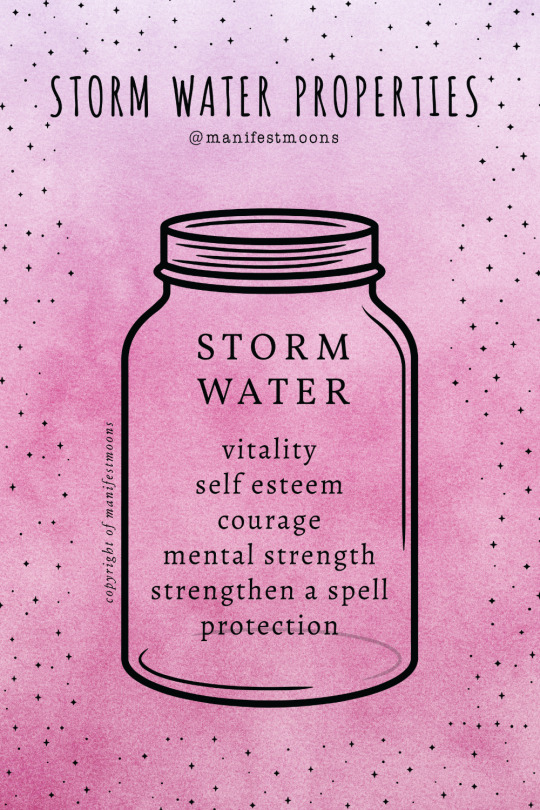


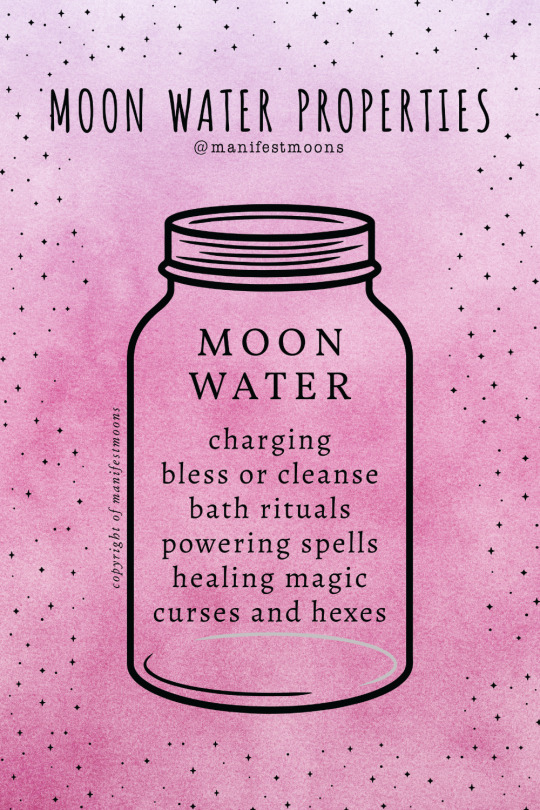




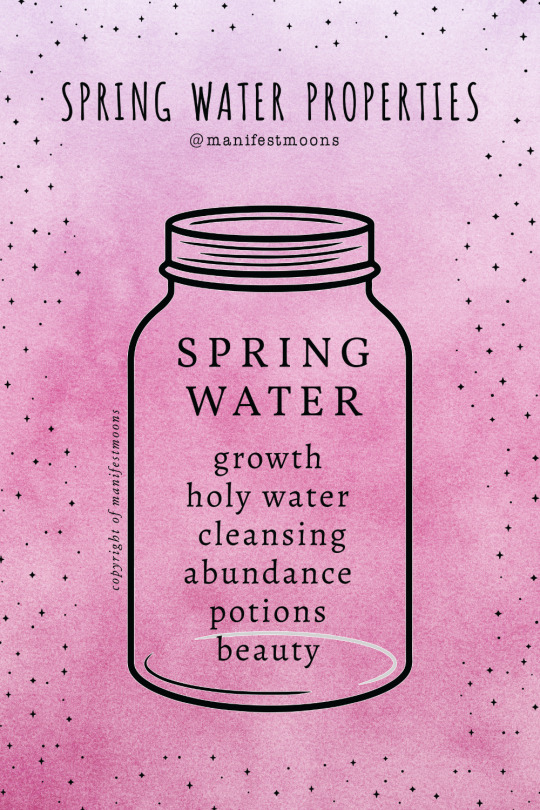
Welcome to manifestmoons
Magical water properties. A part of Grimoire Basics Volume 3
3K notes
·
View notes
Text
I want to find people who want to do this together...

1K notes
·
View notes
Text

Color Associations In Magick
Red - love, seduction, passion, strength, courage, charisma, assertiveness, survival, change, power
Blue - peace, communication, expression, forgiveness, traveling, protection, truth, sleep, patience, trust, pregnancy
Yellow - joy, abundance, intelligence, reason, learning, memory, inspiration, imagination, friendships
Green - growth, wealth, fertility, business, healing, nature, balance, luck, longevity
Orange - creativity, justice, ambition, opportunity, attraction, abundance, confidence, energy, celebration, goals, success
Purple - intuition, decadence, authority, wisdom, knowledge, influence, psychic abilities, devotion, enlightenment, overcoming fears, addiction, independence, spirituality
Pink - self-love, companionship, affection, spiritual healing, kindness, beauty, femininity, marriage, sensuality, children, healing abuse
Brown - home, animals, family, stability, endurance, grounding, solidarity, strength, hard work, earth
White - cleansing, purification, spirituality, higher-self, innocence, illumination, balancing, hope
Black - protection, binding, transmutation, banishing negativity, dignity, force, grief, secrets, endings, loss, security
Gray - stability, concentration, neutrality, reserve, balance, adaptability, flexibility
Gold - wealth, inner-strength, understanding, self-realization, sun, masculinity, abundance, happiness, overcoming addiction, luxury
Silver - wisdom, psychic powers, intelligence, memory, moon, healing, divination, money, femininity, fertility, hidden potential, success, awareness
896 notes
·
View notes
Text
Me when I add literally anything to my altar:

2K notes
·
View notes
Text
Low Energy Devotional Activities and Ways to Connect with the Gods
Let's be honest, religion and consistent practice can be HARD, especially when you're chronically ill, disabled, mentally ill or neurodivergent. This is a list of lower energy practices you can do to connect with your Gods when you're having a rough day.
Pray. You don't have to say the prayer. You don't have to do the full cleansing and offering. Just think about the prayer. It could be as simple as "'Deity Name', thank you. I'm thinking of you and appreciate you."
Dedicate any self care you do to the Gods. You've got to take meds? awesome. it's now a devotional activity.
If you can, light a tea light candle. You can think about who you're dedicating it to as you're lighting it.
Tell them about your day. Have a simple conversation with them (again, this can be in your head if needed).
Offer some water! Water is a great offering if you don’t have the energy to cook, collect or buy something.
Incense is also a great offering because you can light it then forget about it and your house won’t burn down (if you follow regular safety measures).
Resting. Your deities want you to be okay. Dedicating your rest to your deities is especially great if you feel guilty for allowing yourself time to heal.
Turn on a video of someone reading mythos!
Put on a deity playlist. There are plenty of pre-made ones on Spotify.
Veil or bind your hair! Whenever I’m low energy I’ll throw my hair in a ponytail and bind it that way. It doesn’t have to be extravagant.
Make a Pinterest board for them!
Post on a digital altar! There are plenty of discord servers that have digital altars and temples. You could also make a devotional Tumblr blog.
Change your phone lock/home screen to something that reminds you of your Deity.
I hope this is helpful to anyone who needs it! Take care of yourself first and foremost. If you don't think you can manage something on this list then thats perfectly fine too! you're not a bad person for not being able to do something spiritual or religious. Ultimately, these things are not a necessity. Don't stress :)
#hellenic polytheism#paganism#baby witch#beginner witch#hellenic pagan#hellenic paganism#disabled witch
4K notes
·
View notes
Text
As a narcoleptic, I wonder if Hypnos loves me or hates me.
6 notes
·
View notes
Text
Orphic Hymn to Hypnos





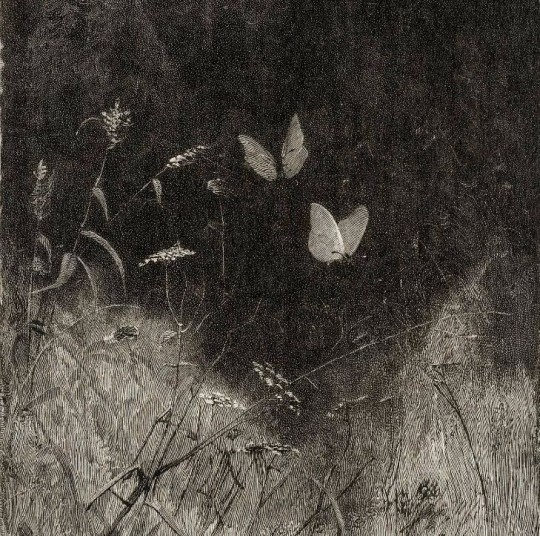
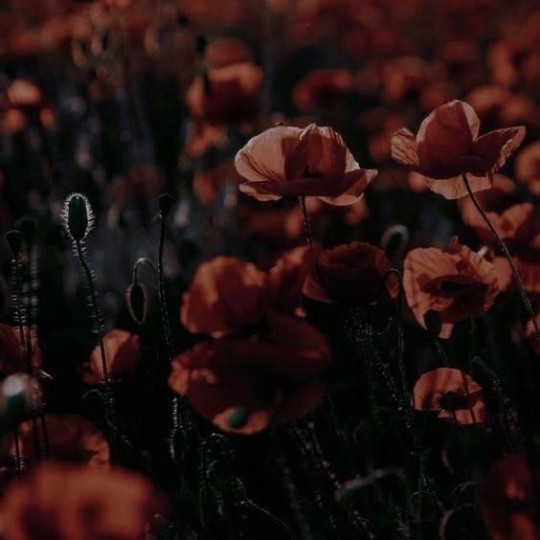

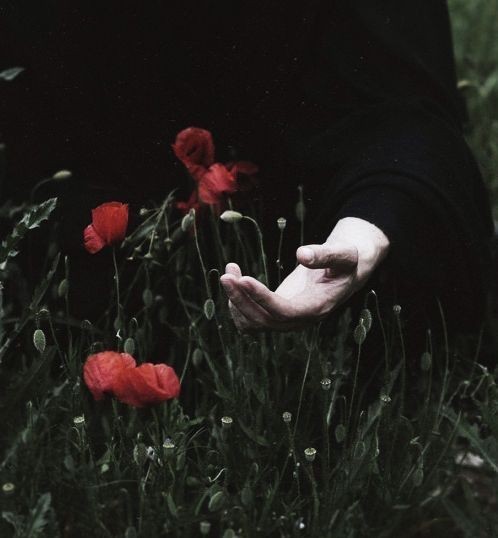
Sleep, you are lord of all the blessed gods and mortal men,
And of every living creature the broad earth nurtures,
For you alone are master of all and you visit all,
Binding their bodies with fetters unforged.
You free us of cares, and, offering sweet respite from toil,
You grant holy solace to our every sorrow.
You save souls by easing them into the thought of death,
Since to Death and Oblivion you are a true brother.
But, O blessed one, I beseech you to come, sweet-tempered,
And kindly save the initiates that they may serve the gods
258 notes
·
View notes
Text
7 Virtues of Hellenism.
Xenia - This is the pillar that signifies hospitality, generosity and reciprocity. It's typically demonstrated in a guest/host dynamic.
Kharis - This is the pillar that signifies appreciation and gratitude. It entails giving to the gods and and expressing gratitude when you receive something from them.
Eusebia - This is the pillar that signifies reverence and veneration towards the gods. It can be translated to 'piety' or 'reverant conduct' meaning that you show respect for them.
Hagneia - This is the pillar that signifies purifying yourself. It entails having moral, perhaps physical too, purity and avoiding miasma where possible.
Arete - This is the pillar that signifies excellence and brilliance. It entails trying to reach your highest potential and this can be in any field.
Sophia - This is the pillar that signifies the pursuit of knowledge and wisdom.
Sophrosyne - This is the pillar that signifies self-control and prudence. It involves being of sound mind and remaining balanced, which can further lead to other positive qualities to have.
I hope these are right and that I didn't misunderstand their meanings! Hopefully this is useful to anyone, I certainly enjoyed making the post!
1K notes
·
View notes
Text
A Collection of Greek Keywords for Hellenic Pagans (kharis, miasma, etc.)
Kharis:
Kharis means 'grace' or 'favour' and it is in reference to the reciprocal nature of our relationships with the gods.
Liddell and Scott describe it as, "A grace or favour felt on the part of the doer but more frequently on the part of the receiver in the form or thankfulness and gratitude."
It essentially means a favour done in delight. This can be both the offering we give to the gods, and the favours and blessings the gods bestow upon us.
Kharis is both the action of offering and worshipping and also what is built between a worshipper and a god through the actions of offering and reverence. It can be used like this:
'Giving an offering to the gods is an example of kharis.'
Or:
'I have built up kharis with Apollo over the years.'
Khaire/khairete:
Khaire or khairete are words that mean 'hail', 'farewell', or 'blessings'.
It can be used to greet someone, either as hello or farewell (I use it at the end of some of my posts). It can also be used at the end of a prayer.
Khaire is used to address one person or god, and khairete is used to address a group.
Miasma:
Miasma means 'stain', 'pollution', 'defilement', or 'stain of guilt'.
It is a type of spiritual pollution that a person or a place can collect through either happenstance or deliberate action. It makes us spiritually unclean but there is no damnation involved in miasma and thus is not similar to sin. Sin is more comparable to agos, which is mentioned later.
We tend to collect miasma while going about day-to-day life, almost like getting our hands dirty while working. The stain it refers to is always one of a spiritual nature; miasma is a strictly spiritual concept.
It makes a person or place ritually impure, hence it is inappropriate to interact with the divine while in a miasmic state. The gods are said to reject the offerings of a miasmic person or to vacate a miasmic place until it is cleansed.
Human blood is also considered to be miasmic when spilled outside of battle, though this is not the case for menstrual blood (although I tend to avoid praying and doing rituals during that week anyway as I consider it to not be my cleanest state possible. I use this time to tend to my altar physically instead, cleaning it and reorganizing it).
Miasma is very common, everyone gets it, mostly due to plain daily life, though sometimes due to deliberate actions. Miasma can always be cleansed.
Sources of miasma include:
Death in the home - Pollutes the grieving and the home. People and home need to be cleansed before interacting with the gods or going to temple.
Birth - Because of the blood involved. Mother and baby are considered by traditional standards to be miasmic for three days postpartum and both are generally cleansed at five days postpartum.
Intercourse - Both parties are polluted by the act and must be cleansed before interacting with the gods or going to temple.
M*rder/m*nsl*ughter - This collects both miasma and agos. The m*rderer becomes miasmic, and a place can become miasmic if a m*rderer is free and unpunished there. This does not apply to blood spilled in battle.
There is a line in Hesiod's Works and Days that refers to the action of cleansing oneself of miasma before interacting with the gods. It reads, "Never pour a libation of sparkling wine to Zeus after dawn with unwashen hands, nor to others of the deathless gods."
Khernips:
Khernips means 'handwash', or 'lustral water'.
It is basically Hellenic holy water. It is used to purify ourselves of miasma before interacting with the gods.
It can be made by dropping burnt herbs or laurel leaves (bay leaves) in clean water, or by dropping a lit match in clean water. Simply washing our hands in plain water can work symbolically as well if done with the specific intention of purifying oneself.
Agos:
Agos means 'curse', 'pollution', or 'abomination'.
It can be considered as a step up to miasma and, while not quite the same, it could also be considered comparable to sin. It is brought about through deliberate actions and it is very difficult, if not impossible, to cleanse. Agos can also invoke the divine wrath of the gods, so it does involve a form of damnation
Some things that cause/invoke agos include:
Having intercourse inside a temple
Temple robbing
M*rder
Bloodshed inside a temple or on sacred grounds
Broken xenia
The refusal to properly bury a family member or a soldier (even an enemy soldier)
K*lling someone who is under the gods' protection
Offering human blood to the gods (due to its miasmic nature)
Agos is hardly as common as miasma, so it is not something the general practitioner should worry about.

576 notes
·
View notes
Text
Low spoons devotion for Aphrodite, Radiant Pearl of Olympus
🩷😘🌹🌊🦪🩷😘🌹🌊🦪🩷😘🌹🌊🦪🩷😘
53 notes
·
View notes
